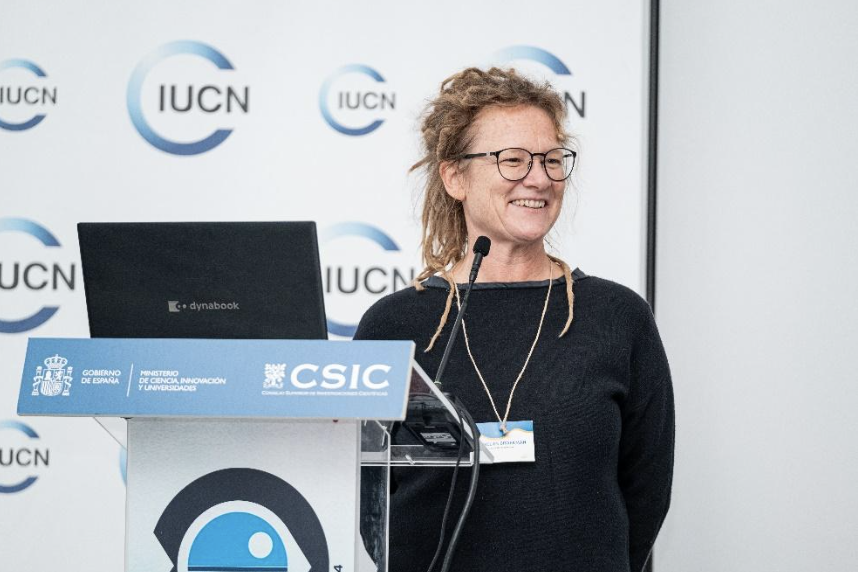On the 28th and 29th of November, the Mission for Natural Heritage organised its 2nd Natural Heritage Institutional Dialogue, coordinated by IUCN Centre for Mediterranean Cooperation and hosted at the Oceanographic Center of Málaga. Bringing together over 150 participants from 17 Mediterranean countries, the event provided a vital platform to explore actionable solutions for protecting and restoring marine and coastal ecosystems—a mission made urgent by the twin crises of biodiversity loss and climate change.
The dialogue was not just an exchange of ideas but a call to collective action, fostering collaboration across sectors, disciplines, and borders. It emphasised the vital role of governance at all levels—cities, regions, and national governments—in driving the protection and restoration of ecosystems. Participants highlighted how coordinated efforts, from local urban projects to national and regional policies, can collectively address the Mediterranean’s dual status as a biodiversity hotspot and a region facing significant environmental pressures.
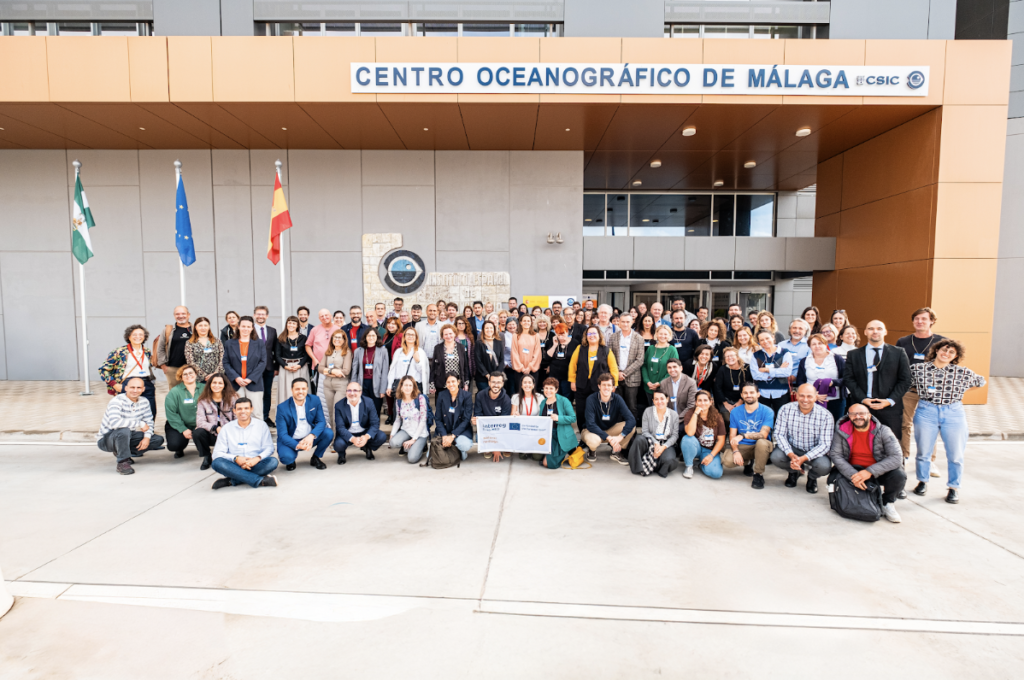
A Mediterranean in Transition
The Mediterranean’s unparalleled ecological and cultural value faces mounting challenges, from urbanisation and overexploitation to the far-reaching impacts of climate change. The dialogue opened with a keynote moderated by IUCN that gathered Vedran Nikolić of the European Commission and José Luis García Varas of WWF Spain, who emphasised the importance of the EU Nature Restoration Regulation (NRR) and the Global Biodiversity Framework (GBF) targets in restoring degraded ecosystems by 2030. The dialogue also examined how EU leadership can inspire non-EU Mediterranean countries, using frameworks like the Barcelona Convention to foster regional cooperation and alignment.
“This law is not just about Europe; it’s a global model,” noted Vedran Nikolić, framing the NRR as a benchmark for international efforts. José Luis García Varas highlighted the need for tailored approaches to marine restoration and prioritised passive restoration as a cost-effective solution, stressing, “We must restore not only habitats but also the ecological services they provide.”
Two roundtables provided deeper insights.
The first roundtable focused on the adoption of the restoration agenda in the Mediterranean, highlighting the intersection of local, national, and regional efforts to meet ambitious conservation targets like 30×30. Panellists emphasised the importance of trust, participation, and communication in achieving restoration goals. Fernando Magdaleno Mas from Spain’s Ministry for Ecological Transition highlighted that progress requires inclusive approaches: “We need action for transformation, but it must be rooted in sound knowledge and built through trust.”
Across the region, collaboration between countries, sectors, and communities was presented as essential to overcoming ecological and logistical challenges, such as managing invasive species, creating transboundary marine protected areas, and integrating land-sea restoration efforts. While challenges remain—such as translating global frameworks into actionable local policies—the consensus was clear: a paradigm shift from conservation to restoration is imperative for the Mediterranean’s ecological future.
The second roundtable, ‘From Policy to Action’, highlighted a range of innovative initiatives aimed at addressing ecosystem degradation in the Mediterranean. ARTEMIS project showcased its focus on active restoration using ecosystem service approaches in Crete, Menorca, Sardinia, and Monfalcone, emphasising the importance of long-term monitoring and alignment with local regulations. “Restoration cannot succeed without embedding these efforts into local governance and securing ongoing commitment,” said Arnaud Terrisse. MPA4Change project, building on past successes, outlined its efforts to integrate climate change adaptation strategies across Mediterranean Marine Protected Areas, aiming to unite stakeholders through the “100 MPA Med Alliance” initiative.
The roundtable also explored the critical role of collaboration and funding in ensuring the success of restoration efforts. Experts emphasised the importance of global coordination to address data-sharing gaps and political barriers, and diverse financial models to mobilise the necessary resources. Additionally, fostering stronger cross-border cooperation and bridging the gap between policy and practical action were identified as key elements in building resilient, long-term restoration strategies across the Mediterranean.
Additionally, a dedicated session on coastal and marine restoration in Spain provided concrete examples of how restoration efforts are advancing within the framework of the EU Nature Restoration Law and its National Restoration Plans. Participants explored pioneering projects aimed at rehabilitating critical habitats, with discussions stressing the importance of integrating scientific research, stakeholder engagement, and long-term monitoring.
These discussions reinforced restoration as both an environmental and socio-economic imperative, requiring coordinated action to preserve the Mediterranean’s unique natural heritage while addressing the pressing challenges of climate change and biodiversity loss.
🎥 https://www.youtube.com/watch?v=dGboCaybNV0&t=4496s
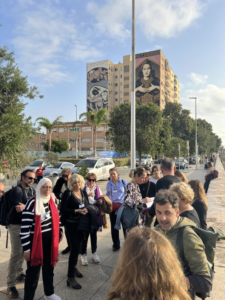
As part of the event, participants were invited to join the Climate and Biodiversity Tour, organised by Social Climate. The route showcased Málaga’s heritage, traditions, and its connection to the marine environment, with a particular focus on climate change. At each stop, participants explored its causes, impacts, and potential solutions, particularly in relation to the marine ecosystem.
The tour included visits to iconic locations such as Calle Larios, Paseo del Parque, and Muelle Uno, blending cultural history with discussions on sustainability and biodiversity. It provided an opportunity to reflect on how local actions in Málaga are engaging with climate challenges while fostering dialogue on balancing heritage preservation with environmental stewardship.
Science and policy in dialogue
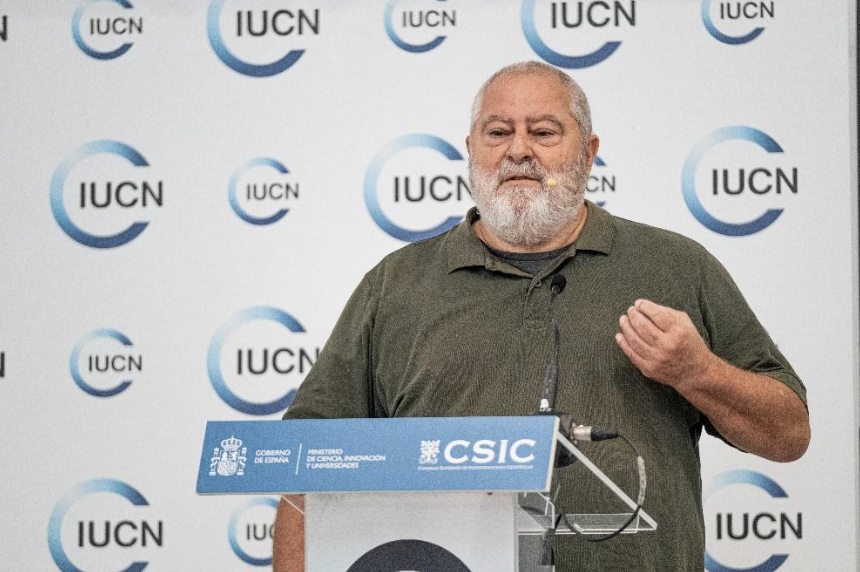
The event’s keynote address, delivered by the sustainability scientist Mario Giampietro, challenged conventional approaches to environmental governance. “We must address the root causes of degradation, not just its symptoms,” he urged, advocating for policies grounded in ecological realities and socio-economic considerations.
His thought-provoking address sparked a lively debate among participants, with discussions focusing on the feasibility of systemic changes, the balance between ambition and pragmatism in policymaking, and the need for inclusive, science-based solutions to drive meaningful environmental restoration.
🎥 https://www.youtube.com/watch?v=h03UeJPpV9g&t=2139s
Advancing Restoration Policy: Collaborative Working Groups
The meeting of the Natural Heritage Working Groups was a key activity during the event, aimed at refining policy recommendations on restoration and aligning them with the unique socio-political realities of the Mediterranean. Participants were divided into four groups to examine the draft policy recommendations, identify gaps, and discuss their positioning within the Euro-Mediterranean area.
To set the stage, the session opened with an overview of the draft policy recommendations, highlighting their key principles and objectives. The discussions that followed focused on ensuring the recommendations were actionable and could be effectively integrated with existing frameworks, such as the Barcelona Convention and the EU Nature Restoration Regulation.
Building the Natural Heritage Community of Practice
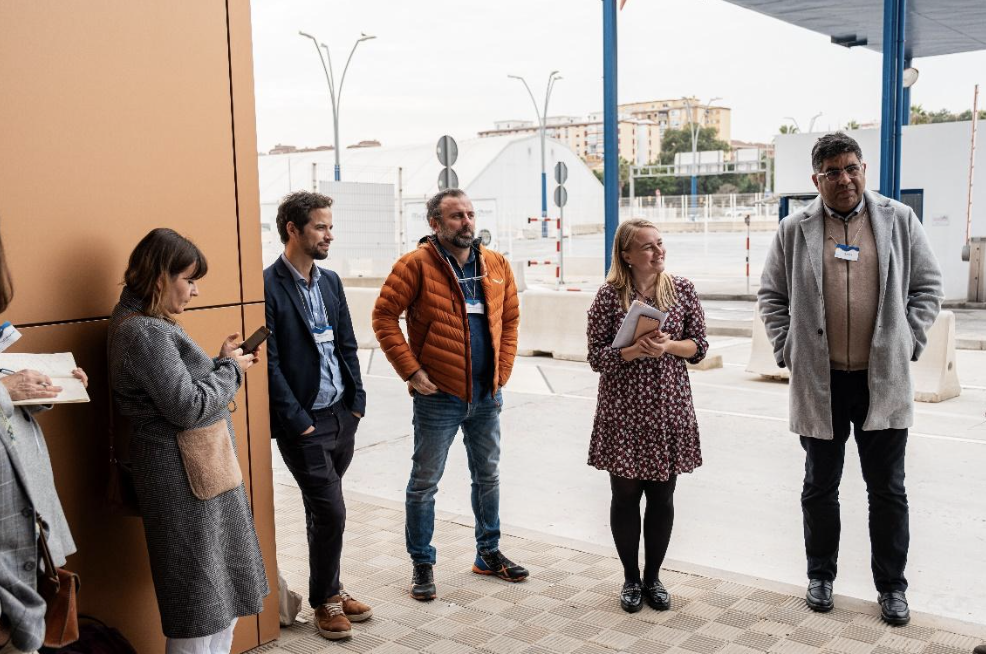
The afternoon session on the second day: offered participants an engaging platform to foster collaboration, share knowledge, and strengthen connections within the Mission’s network.
The session included:
- Clustering activity: Introducing the concept of geographic and thematic clustering to promote collaboration and coherence among projects. Participants were divided into five geographic clusters to find common expertise and areas of work: South Mediterranean and international organisations; Iberian Peninsula; Italy, Malta and France; Balkans; and Greece and Cyprus.
- Thematic projects marketplace: The highlight of the session was an interactive exercise that gave each thematic project within the Natural Heritage Mission the opportunity to showcase their work at individual stands. Projects presented their key focus areas, outcomes, and policy or advocacy efforts while identifying potential synergies with other initiatives. Attendees engaged in discussions about opportunities for collaboration, ranging from shared thematic goals to joint events, publications, and policy initiatives, while also addressing challenges and strategies for scaling impact.
- Timeline of events: A collaborative exercise aimed at enhancing coordination and visibility across the Mission’s activities. Large physical calendars were provided for participants to mark important dates and events of shared interest. This interactive approach fostered collective planning and ensured that key milestones, activities, and opportunities for collaboration were clearly visible to the entire Natural Heritage Mission community.
This dynamic session reinforced the Mission’s commitment to building a strong, interconnected community of practice, capable of driving impactful, coordinated actions across the region.
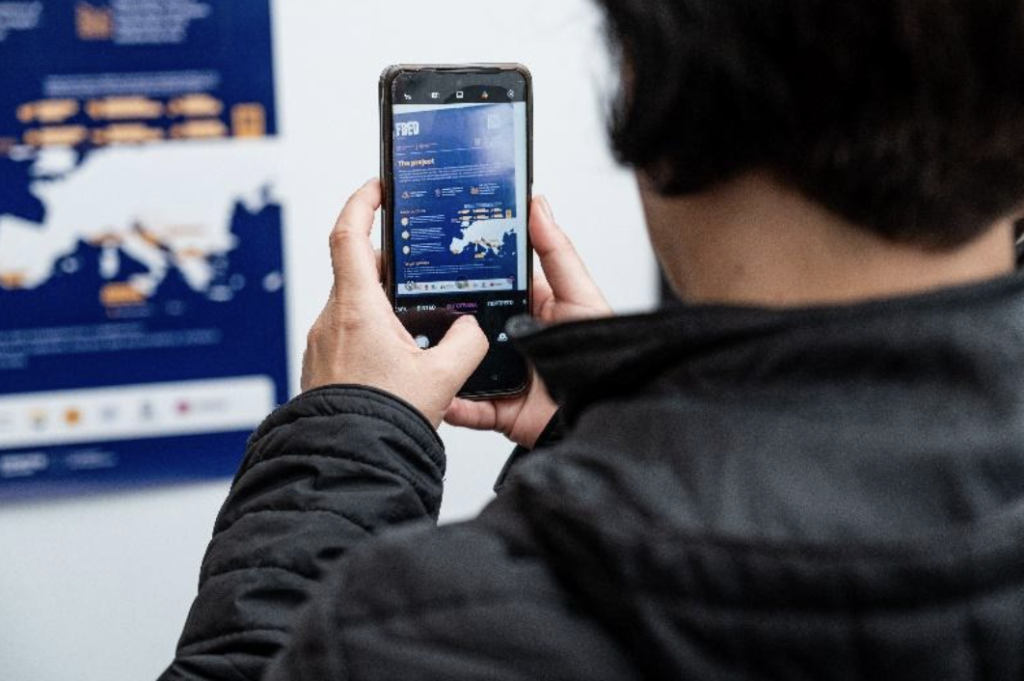
A Call to Action for the Future
The dialogue concluded with a compelling call to action: restoration is not a choice—it is an urgent necessity. Participants emphasised the Mediterranean’s unique role as both a biodiversity hotspot and a region under significant environmental stress, outlining key priorities for the future:
- Scaling effective local solutions to align with and influence global frameworks.
- Strengthening partnerships across sectors, disciplines, and borders to drive coordinated efforts.
- Establishing robust systems for transparency, monitoring, and accountability to ensure long-term impact.
This pivotal moment demands bold and unified action. The dialogue in Málaga reinforced the shared responsibility of Mediterranean stakeholders to restore and safeguard their natural heritage. By integrating the lessons learned from this event, the region can lead the way in bridging local initiatives with global ambitions, setting a powerful example for collaborative and impactful restoration efforts worldwide.
